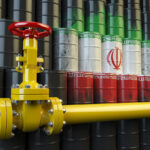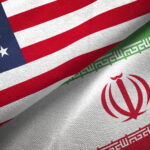Iran deal threatens U.S. energy security – Senator John Hoeven
The chair of the Senate Committee on Homeland Security, Senator John Hoeven (R-ND), released a video ahead of President Obama’s State of the Union address saying that the Iran nuclear deal is a threat to U.S. energy security.
“As a consequence of President Obama’s nuclear agreement with Iran, this state sponsor of terrorism will now be able to increase its oil exports at a moment when our moderate Sunni allies, and their partners, feel increasingly threatened by Iranian belligerents,” said Hoeven in a release. “As a result, Saudi Arabia has opened the spigot to maintain its own level of export.”
Hoeven advocated taking “proactive steps” so that the U.S. oil and gas industry can continue to grow.
A global battle to determine who will produce oil and gas in the world
“Make no mistake, we are locked in a global battle to determine who will produce oil and gas in the world in the future,” he said. “Will it be OPEC? Russia? Countries like Venezuela? Or will it be us, the United States.”
Proactive steps to grow the U.S. energy industry
Sen. Hoeven praised the efforts made by Congress to lift the more than 40-year old crude oil export ban as part of a wider strategy for the U.S. to become a major player in global energy.
“Lifting the antiquated ban on oil exports and enabling our country to compete is just one example,” of the proactive steps needed to help the energy sector grow, said the senator.
“Low-cost energy makes us more competitive in the global economy across the board in all industry sectors,” he said. “You do that by building the kind of legal, tax and regulatory climate that attracts investment, innovation and jobs. You do that by reforming the tax code to make it simpler, flatter and fairer so that the American people have the motivation to compete and win.”
Tensions in Iran rise ahead of elections: “… Iran will … punch them in the mouth”
The Iran nuclear deal is a major facet of President Obama’s foreign policy legacy, but rhetoric towards the U.S. remains negative ahead of Iranian elections next month, reports The Wall Street Journal. Since the completion of the nuclear deal last July, Iran’s security forces, led by Supreme Leader Ayatollah Khamenei, have increasingly targeted political opponents in order to ensure political victories in the coming elections.
“Americans have set their eyes covetously on elections, but the great and vigilant nation of Iran will act contrary to the enemy’s will, whether it be in elections or on other issues, and as before will punch them in the mouth,” he told a meeting of prayer leaders this week.
A rash of recent arrests of political dissidents and reformists has some worried that the lifting of international sanctions may not have the desired effect. It was hoped that by bringing Iran back into the international community, reform might be accelerated.
“The guiding assumption was that Iran would not moderate its behavior,” said Rob Malley, President Barack Obama’s top Mideast adviser. “The president considered [it] absolutely critical to get this nuclear deal because we had no assessment that in the foreseeable future, Iran would change its approach.”
Rather than relying on developing homegrown nuclear weapons, some analysts have expressed that Iran could simply take some of its estimated $100 billion in unfrozen assets which were earmarked for release by the summer’s nuclear deal and use the money to purchase nuclear weapons from like-minded allies such as North Korea. Russia had already announced last year it would sell its new S-300 ground-to-air missile systems to Iran, causing a lot of unease on behalf of Western nations.
“A sophisticated Russian air-defense system would help Iran better protect its launch sites for long-range missiles that can hit Europe,” Ben Moores, senior analyst at IHS Janes, told the Wall Street Journal in April 2015.







